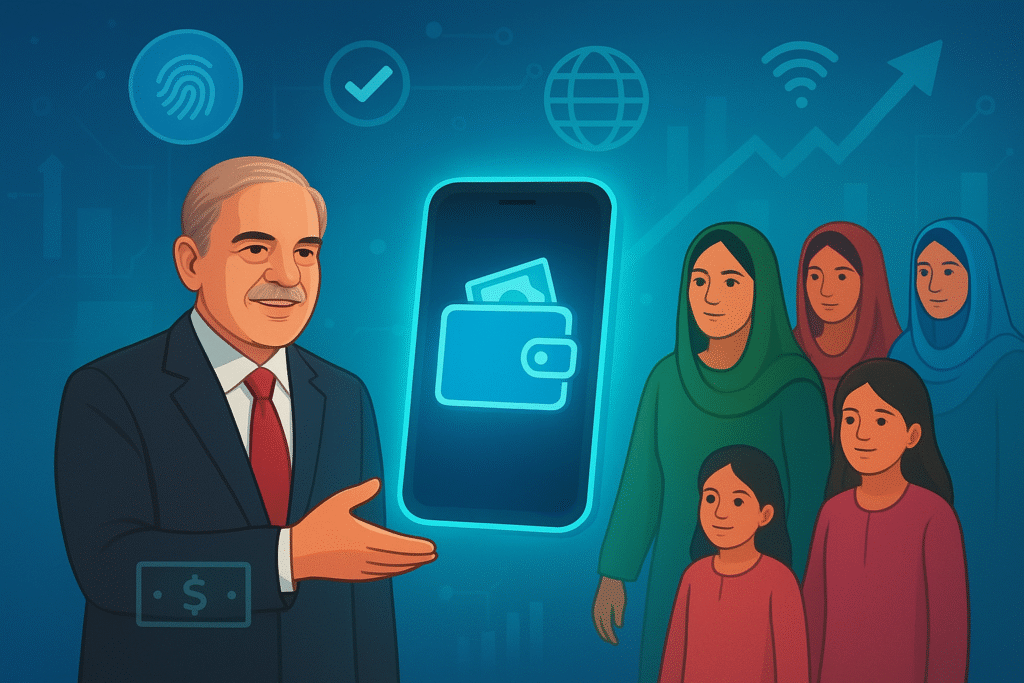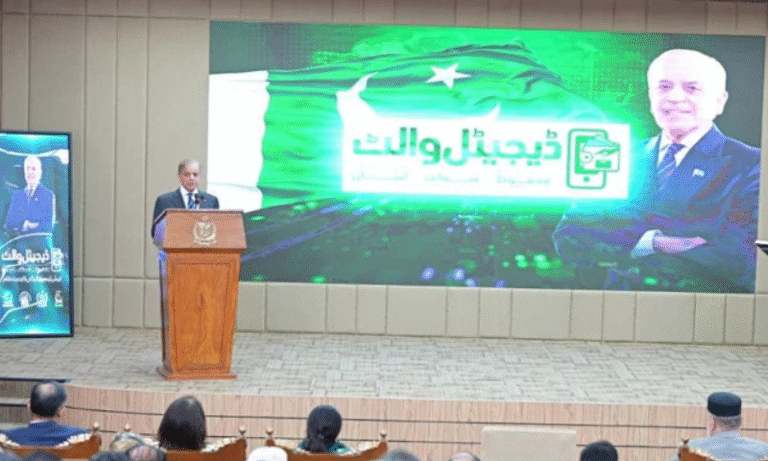Prime Minister Shehbaz Sharif on Monday introduced 10 million digital wallets for families registered under the Benazir Income Support Programme (BISP). He called the initiative a “historic milestone” in Pakistan’s journey toward transparency, financial inclusion, and a modern cashless economy.
The launch took place in the presence of federal ministers, BISP officials, and international partners, including GIZ. The prime minister congratulated BISP Chairperson Senator Rubina Khalid and all stakeholders, noting that the digital wallets will ensure genuine beneficiaries receive support without hurdles.
“This programme truly reflects the vision of Shaheed Mohtarma Benazir Bhutto, empowering women and families through direct, safe, and transparent financial assistance,” Shehbaz said.
Moving Toward a Cashless Pakistan

Shehbaz Sharif highlighted that BISP plays a critical role in poverty reduction and employment creation. He pointed out that in Ramazan, 78 percent of relief funds were disbursed digitally, proving the success of technology despite initial resistance.
“Cashless transactions are essential. They save time, eliminate corruption, and improve efficiency, helping Pakistan grow at a faster pace,” he said.
The prime minister reaffirmed his commitment to expanding digital channels in government, business, and everyday transactions.
Linking Aid with Education and Health
Shehbaz urged BISP leadership to connect financial support with education and health. “Families receiving assistance must ensure all children go to school, and healthcare initiatives should also be tied to this programme. This will make BISP a legacy that transforms future generations,” he stated.
He also directed that the programme’s implementation cycle be reduced from ten months to four months and praised the contributions of the State Bank of Pakistan, IT Ministry, partner banks, and development agencies.
New Features for Beneficiaries
BISP Secretary Amir Ali Ahmed confirmed that 10 million wallets will be developed through CNICs with biometric verification to prevent fraud. Additionally, 10 million free SIM cards will be distributed, with the first phase already launched in Hyderabad, Sukkur, and Rahim Yar Khan.
Senator Rubina Khalid termed the launch a “historic milestone,” noting that linking benefits to women’s CNICs ensures their recognition in the national database. She added that digital literacy programmes would also help women gain confidence in using technology.
“This programme is not just financial aid—it is a road to empowerment and progress,” she said.
Building Pakistan’s Digital Future
Last week, PM Shehbaz reviewed progress on the government’s push toward a cashless economy. He directed provincial administrations to expand the Raast digital payment system across districts for smoother transactions.
Officials briefed him that Pakistan is building a digital public infrastructure, combining national ID cards, biometrics, and mobile numbers to create secure digital IDs for all citizens.
The system will help integrate government-to-public and public-to-government payments, while federal agencies have already allowed rights of way for fibre optic expansion. Talks with Pakistan Railways and the National Highway Authority are also underway to strengthen nationwide digital connectivity.



